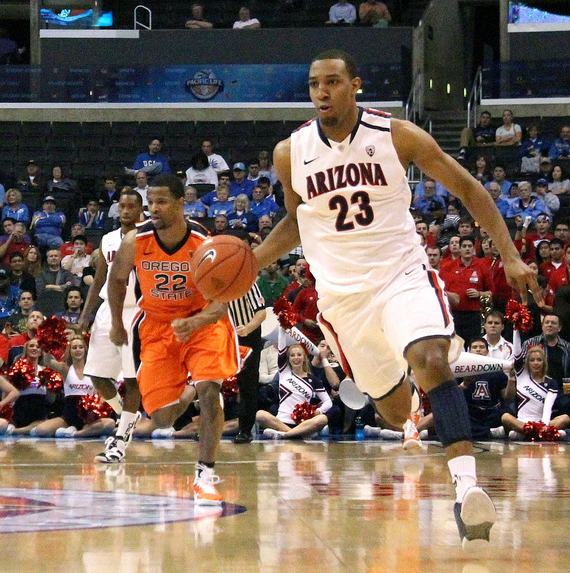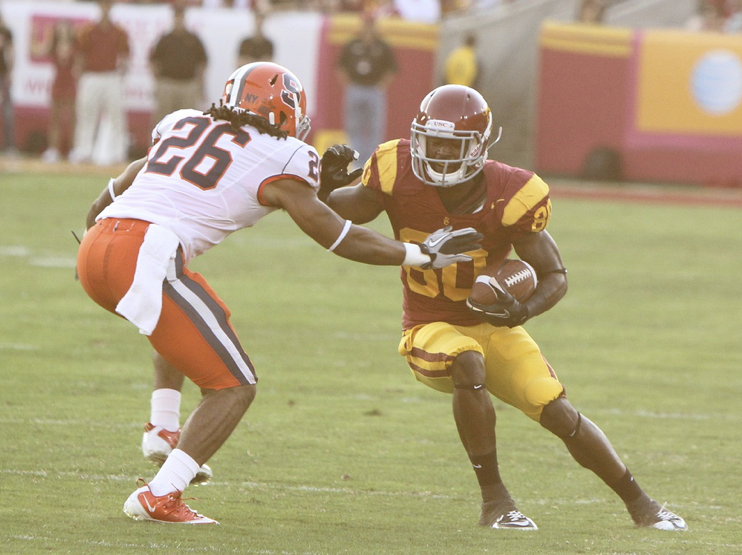College Athletes Should Be Paid (Part 1)

I believe that college athletes should be compensated on top of getting a full scholarship to their respective universities. But where will the money for these athletes come from, the schools or the NCAA? The right answer to ethically paying student athletes is for your board to let players have agents in college.
Legalizing agents is the ethical because it is the only way to ensure that players receive the compensation that they deserve based on performance. While agents are by most accounts some of the least ethical people on the planet, by legalizing their contact with colligate athletes the NCAA will solve their money problems and off-field issues as well.
Why Athletes Deserve Money
Money is rolling into the NCAA, and none of the money is going to the stars of the show, the players. The NCAA reached a $10.8 billion agreement with CBS/Turner Sports for the rights to broadcast NCAA men's basketball tournament until 2024. The players on the court will receive nothing more then a t-shirt. By contrast, in the National Basketball Association the players receive 51 percent of all basketball-related revenue.

Money from merchandise sales, and even pictures and videos of players go directly to the NCAA and they schools represented, none of the money goes to the athletes featured. This means that if there is a video celebrating a player's great NCAA career, the NCAA collects all the profits and the player sees none. Even if the player has since graduated and become a professional, the NCAA still owns the rights to all footage and images all collects all the revenue.
The NCAA is also a nonprofit and is exempt from federal income tax under the 501(c)(3) section of the federal tax code. Most major universities are nonprofits as well, giving them the same tax exemption. This means that not only is the NCAA and the schools making money off of the athletes, they get to keep double what a professional sports organization would get to keep.
Tyrone Prothro Story
Tyrone Prothro has attached his name to the Ed O'Bannon lawsuit against the NCAA. Tryone was a wide receiver for Alabama and destined to be an NFL star until he shattered his leg on October 1, 2005 against Florida. This injury caused him to quit football. He would have made millions in the NFL, but because of the injury he sustained in college playing for free, Prothro was never able to make a penny off of his football talents. Images of him and highlights of him are shown periodically, to help promote Alabama football.
Not only did Tyrone make nothing while playing football at Alabama, he also does not receive any of the money that he helps produce for the team after his time at Alabama. Players' likenesses are used all the time in posters, billboards and video games without any monetary compensation for the players. NCAA athletes are the only people who are featured in ads and promotions that do not receive any compensation. Even if the players don't get paid to play, there is no reason why players should not be paid for the additional things they do to help promote their team.
Why Athletes Aren't Being Paid

There is also an issue with the ethics of the amount of money that players should be paid. The way that the NCAA is structured, there must be compensation equality for all sports regardless of how popular the sport is or the gender of the athletes. However, the only true revenue-generating sports are football and men’s basketball.
By paying players equally, those sports that are losing money will hurt schools even more. If the schools are stuck with the burden of paying athletes, the costs of some sports will start to outweigh the benefits, and sports will have to be dropped by schools. So the rules of equality that are supposed to benefit the non-revenue generating sports will end up hurting them in the long run.
Different Compensation Still Fair
Some may feel that compensating players different amounts is unfair. However, different amounts of compensation for players already exists in college sports. Athletes in sports that do not have enough scholarships designated to field a team have to receive partial scholarships.
For example, in baseball, each team can only give out 11.7 scholarships for a team of 30 players. These 11.7 scholarships are not divided evenly. Some athletes may be receiving a full scholarship, while others may be getting one-quarter of a scholarship, while others may be paying their full tuition. It is fair because, despite the old adage that every player is of equal importance, a player who is a star on his or her team is more important to the team than a player who sits on the bench.
In every professional sport, and in all fields of work, the stars make more money on their contracts from their employers and through sponsorship deals. Even star students at universities will receive scholarship offers that a normal student will not receive. Since performance-based compensation is used everywhere else, it should be used for NCAA athletes as well.
In Part 2 on Thursday, how allowing college athletes to hire agents could level the playing field.
----------------
Reach Tommy by email, or follow him on Twitter.
Best way to find more great content from Neon Tommy?
Or join our email list below to enjoy the weekly Neon Tommy News Highlights.



